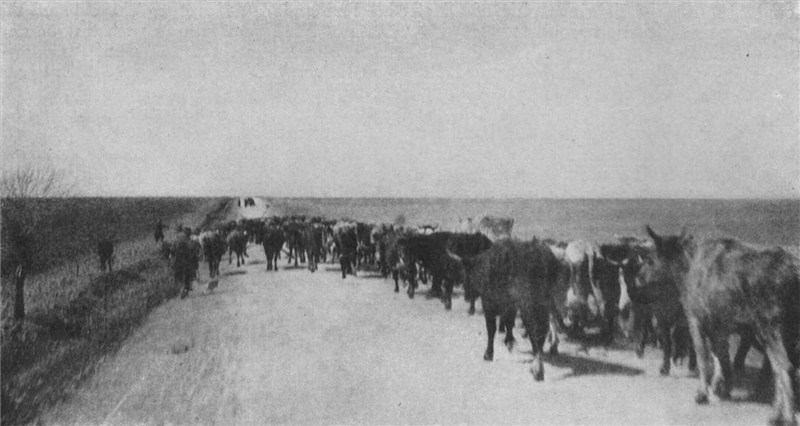 |
| Village in Galicia destroyed early in World War One. |
Katherine Pylatiuk was ten years old when the Russian Army invaded
her village, Bila, just outside of Ternopil, in Eastern Galicia. She was 18 when the World War One
finally ended in 1921. When the war
started in 1914, Katherine, my great aunt, lived in the Austrian-Hungarian
Empire, when all the associated
conflicts ended in 1921, she lived in Poland. Between 1918 and 1921, when the wars ended, her village was
ruled by the Germans, then by the Ukrainians and finally, the Poles.
Katherine’s father, Sylvester Rychly had immigrated to the
United States and lived in Minneapolis, Minnesota. Her mother, Marya Bryniak Rychly and her six brothers and sisters lived in Bila. It was
difficult being a single mother, but more difficult when you are living in a
battle zone. She and her family
shared their one room house with Russian soldiers for a good part of the
war. The village was often shelled
by the armies, food was scarce.
The armies took whatever they wanted from the villagers, and never
reimbursed them for anything.
Diadko (Uncle) Panko Bryniak, Marya Rychly’s brother, was
drafted into the Austrian army and left a mare and foal in Marya’s
keeping. Katherine and her cousin
took the animals to a pasture to graze, thinking it was a safe place to take
the horses, since horses were very valuable to the villagers. While they were there, Russian soldiers rode up, took the mare and
the foal followed its mother. The
family was upset about the loss, but there was nothing they could do about it.
One Christmas, probably in 1914 or 1915, the family had
Russian soldiers in their house and yard, chosing the location because it
was close to a village well. They brought their “magazyn” (supply wagon) and set up a kitchen in the yard. The villagers put straw on the floor of
their houses at Christmas to remind them of the stable in Bethlehem where Jesus
was born. Since the Russian
soldiers slept on the floor, the straw became dirty and matted down. Marya had asthma, and the layers of
straw made her sick, confining her to bed for several weeks.
The good thing about having the “magazyn” was that the
soldiers shared their food with the family. Food was scarce during the war, and for a short while, the
family had enough to eat.
In 1917, when the Russian army retreated back to Russia, the
soldiers ordered the villagers to bring all the cattle to a special enclosed
field. Since Marya had only one
cow and six children to feed, she didn’t want to give it up. As Marya and the other villagers herded
the cattle down the street, she passed her brother’s yard, and quickly pushed
the cow through the gate and hid it.
Fortunately the fence was high and the Russian soldiers didn’t see
anything. The cow was saved, and
the family had food. Since Marya was both
mother and father to her family, so she did what she thought was right. She took a great risk, because if the
soldiers discovered her actions, the punishment would have been a beating or
death. The family would lose both
the cow and its mother.
 |
| This bridge is not in Galicia, but it may be similar to the one built by Russian soldiers over the Syret River. |
On Sundays, the village young people walked to the woods,
and crossed the river Syret to get to there. They used a rickety wooden plank bridge that was built by
the Russian soldiers, The bridge was considered dangerous, but they used anyway. One Sunday, Katherine and friends went
swimming in the lake, and Russian soldiers stole their clothes. They did return the clothing, but it
was the last time she went swimming during the war.
As the war years passed, old customs changed. In early
summer, before the war, the villagers went to their fields on ”Green Sunday” to
bless the grain fields and to ask for a good harvest. The young men and women carried crosses and banners, and
people sang hymns. During the war
this happened only at night. The
soldiers would shoot at anything that they thought was a threat, cultural
events and speaking the Ukrainian language were considered threats. Even though the events were conducted
at night, it was very dangerous.
Living on a battlefield was dangerous. A person never knew
what to expect, life was always changing, and not for the better.
Source:Katerzina(Kaska), Autobiography by Katherine Pylatuik Lymar as told to her Daughter, Julie in 1988.



No comments:
Post a Comment